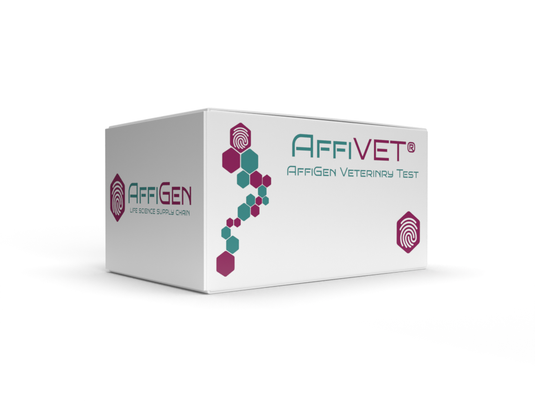AffiVET® Feline Immunodeficiency Virus FIV Antibody, Feline Coronavirus FCoV Antibody & Feline Leukemia Virus FeLV Antigen Rapid Test Kit
Species: Feline
Disease or Pathogen: Feline Immunodeficiency Virus & Coronavirus
Target: Antibody - Antigen
Test Type: Rapid Tests
What is Feline leukemia virus ?
Feline leukemia virus affected cats can develop anemia (a low red blood cell level), cancers, and/or suppression of the immune system. The disease worsens over time and is usually fatal. The virus can infect domestic and wild cats (such as lions). Widespread testing and vaccination efforts have helped to reduce the prevalence of the disease over the past 30 years, and in 2010 approximately 3% of the cats in the United States were infected. There is increased risk for the disease among outdoor cats, unneutered males, and cats with other diseases (especially respiratory disease, mouth diseases, and abscesses).
Feline leukemia virus is transmitted between cats via infected saliva and urine. Direct contact with these body fluids, mutual grooming, shared litter boxes and food dishes, and fighting (bite wounds) all expose uninfected cats to the virus. To become infected, cats typically require prolonged, repeated exposure to the virus. Mother cats can also transmit the virus to their kittens while they are in the womb and through breast milk. It is likely that the transmission from a mother to her kittens is the greatest source of infection. Young kittens have the highest risk for catching the virus, whereas adults may have some inherent protection. However, cats of all ages can catch the virus and develop the disease.
What are the symptoms of FeLV ?
- Anemia
- Cancer (especially lymphoma and leukemia)
- Suppression of the immune system (increasing the risk of other infections)
- immune-mediated disease (in which the cat's immune system causes damage to its own cells)
- Reproductive problems (loss of pregnancy and "fading kitten" syndrome)
- Intestinal inflammation, neurologic disorders (including nerve dysfunction and blindness)
- Stomatitis (severe inflammation in the mouth)
- These disorders can be worsened by the presence of other infectious diseases, such as feline panleukopenia or calicivirus.

